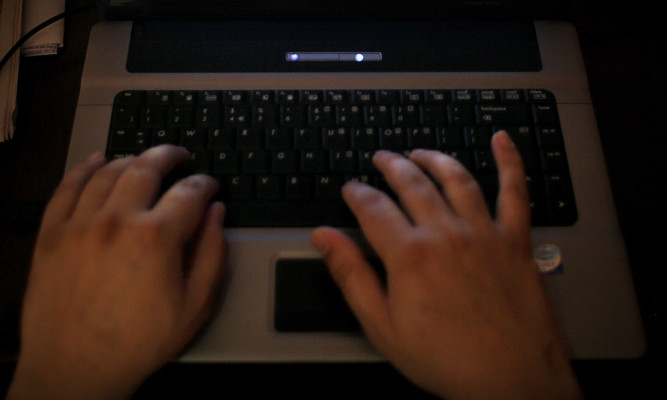Cyberbullying has left some journalists fearing for their personal safety, according to a survey.
A number of reporters said they have received death threats and others said they now take “additional security precautions” when out and at home.
Twitter was identified as the main source of cyberbullying, with 65% of those who took part in the survey reporting it as the source of abuse, 28% were threatened with violence or serious harm to themselves and 5% were subjected to threats of violence or serious harm to their families.
The study identified much of the abuse as political but there were also cases of sectarian, sexist, racist and homophobic abuse.
The survey revealed that some journalists have experienced a form of cyberbullying more than 50 times in the past year, but more than 80% said they had not reported the abuse to police.
The findings are from a joint study by the National Union of Journalists (NUJ) and the University of Strathclyde.
Researchers said it was a “freedom-of-expression issue” and that some journalists indicated they may avoid contentious stories in future.
Dr Sallyanne Duncan, a senior lecturer in journalism at Strathclyde University, said: “Social media is a professional tool for journalists which keeps them connected whether they are at work or at home, and consequently it can be really difficult for them to escape their abusers.
“They can’t switch off their devices without potentially missing a story, so the result is that they are constantly a target.
“Our research is concerned with the effect on their mental and physical well-being, and how this affects them both personally and professionally. This is also a freedom-of-expression issue.
“Our research has indicated that some journalists might choose to self-censor, avoid contentious stories or stop using social media in order to avoid their abusers. This could have serious consequences for a free society.
“We plan to carry out more detailed research into the scale of the problem, its impact on journalists and the way they do their jobs, and how to address the problems raised.”
NUJ Scottish organiser Paul Holleran said criticism of journalists is expected but that a line has to be drawn at “unacceptable levels of abuse and threats”.
He said: “In September 2014 the NUJ called for the end to threats and intimidation of journalists reporting on the referendum.
“We had also earlier in the year supported a number of members who had been threatened by football supporters, unhappy at the way stories related to their club were being covered.
“In recent weeks there has been a spate of attacks on journalists and the union responded, targeting the bullies and demanding a stop to the abuse.
“This stage of our campaign is about stepping up the pressure on the bullies but also calling for employers to step up to the plate and stand up for journalists working for their titles or stations.
“As we have always stated, it is to be expected when journalists are criticised but we draw a line at unacceptable levels of abuse and threats.
“We will highlight any ongoing attacks and in serious cases we will involve Police Scotland who have always been supportive of our work in this field.”
The sample size was 35, which included freelance, broadcast and print journalists.
